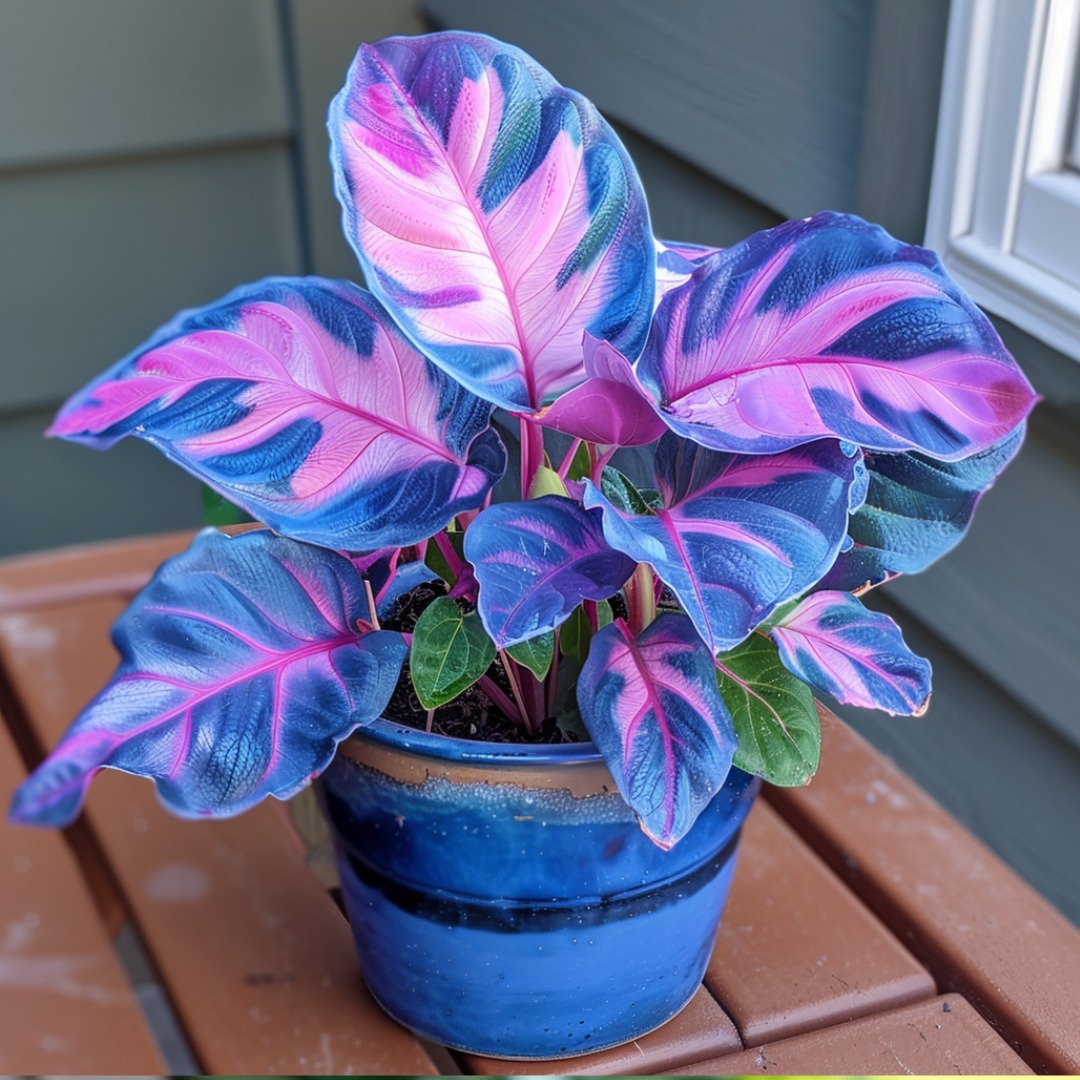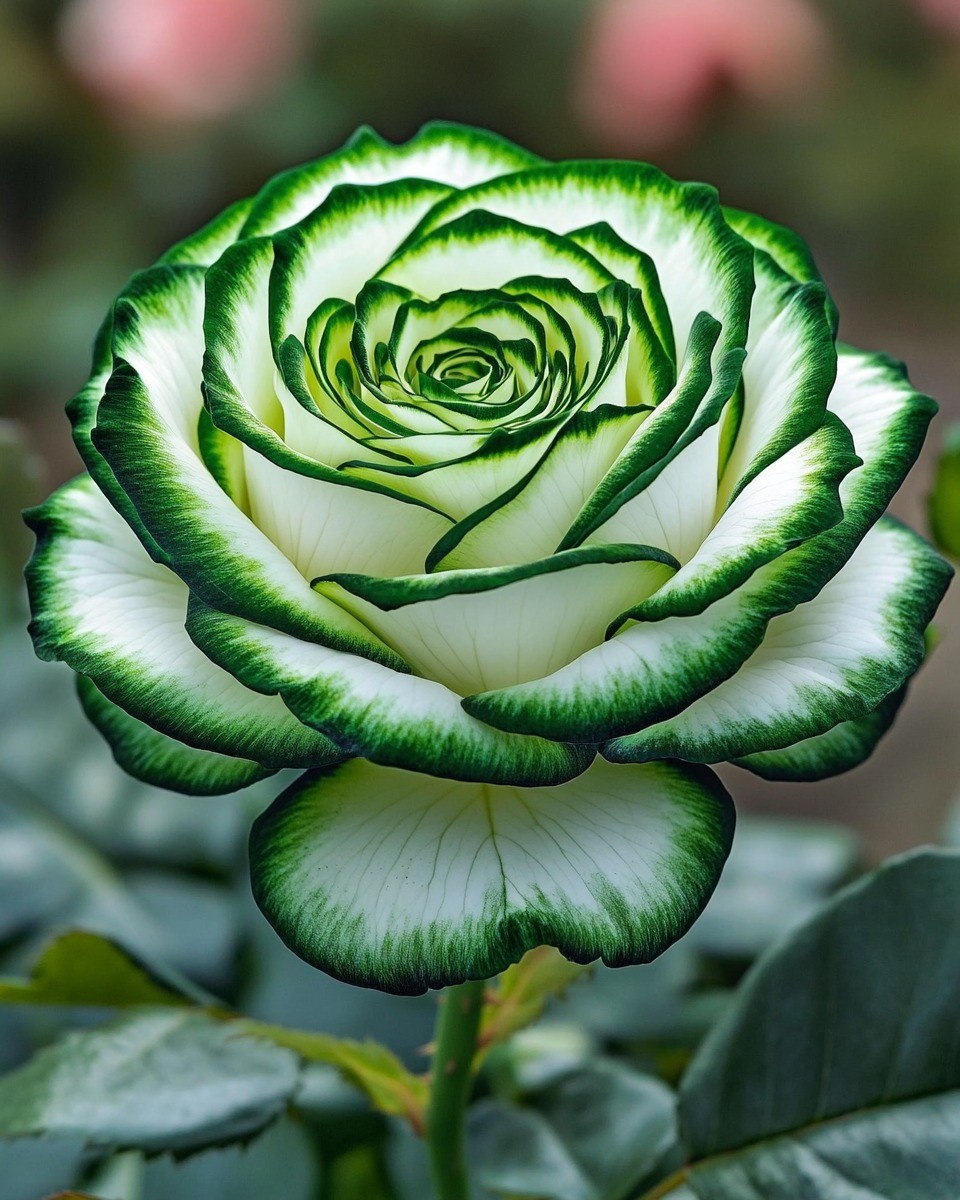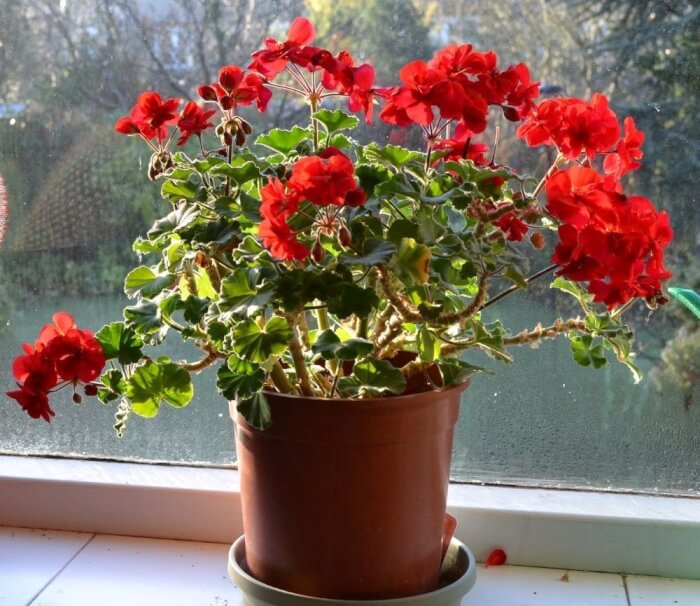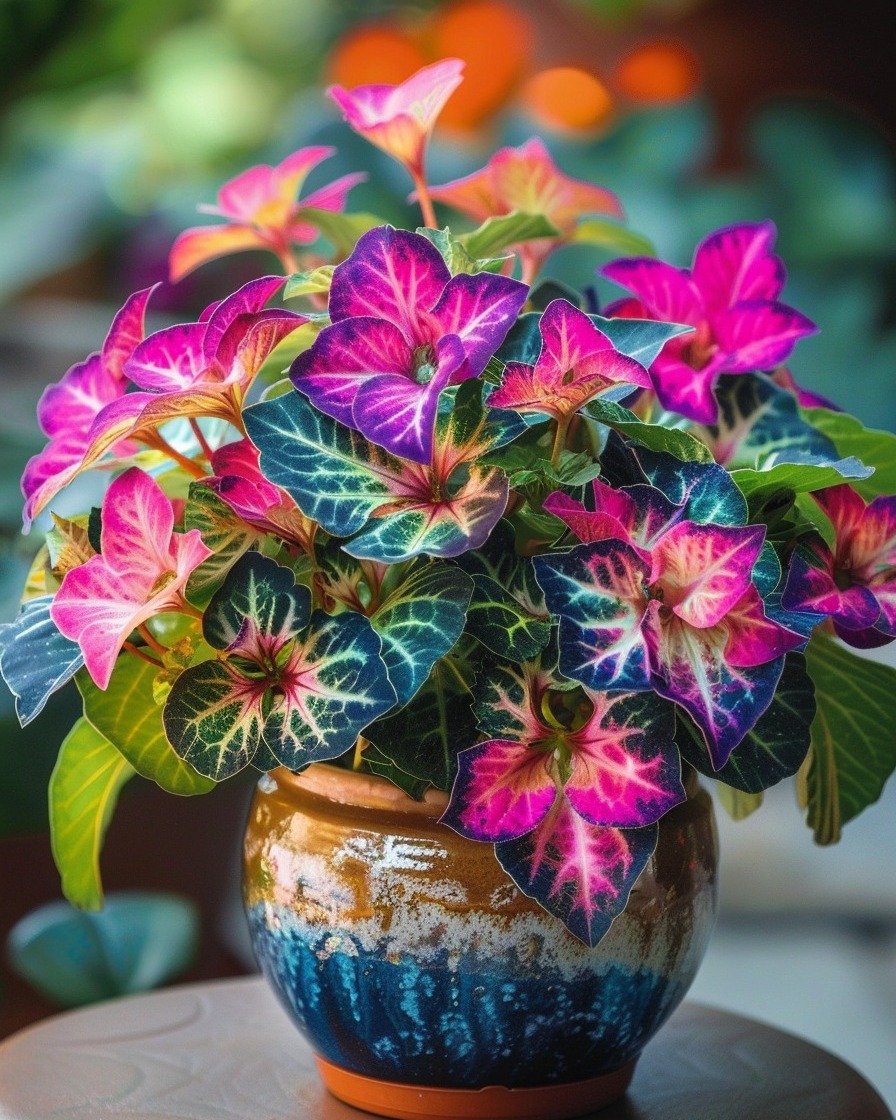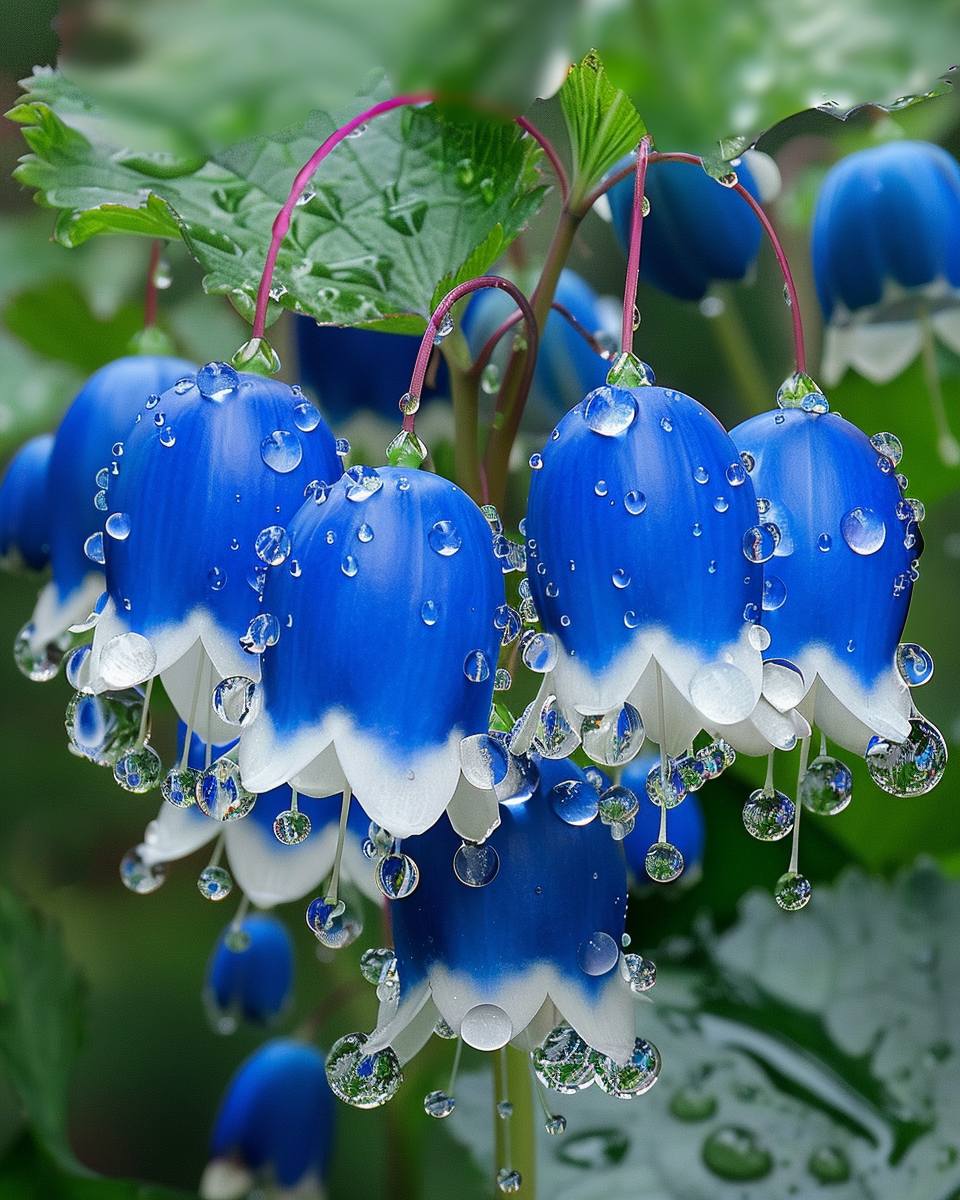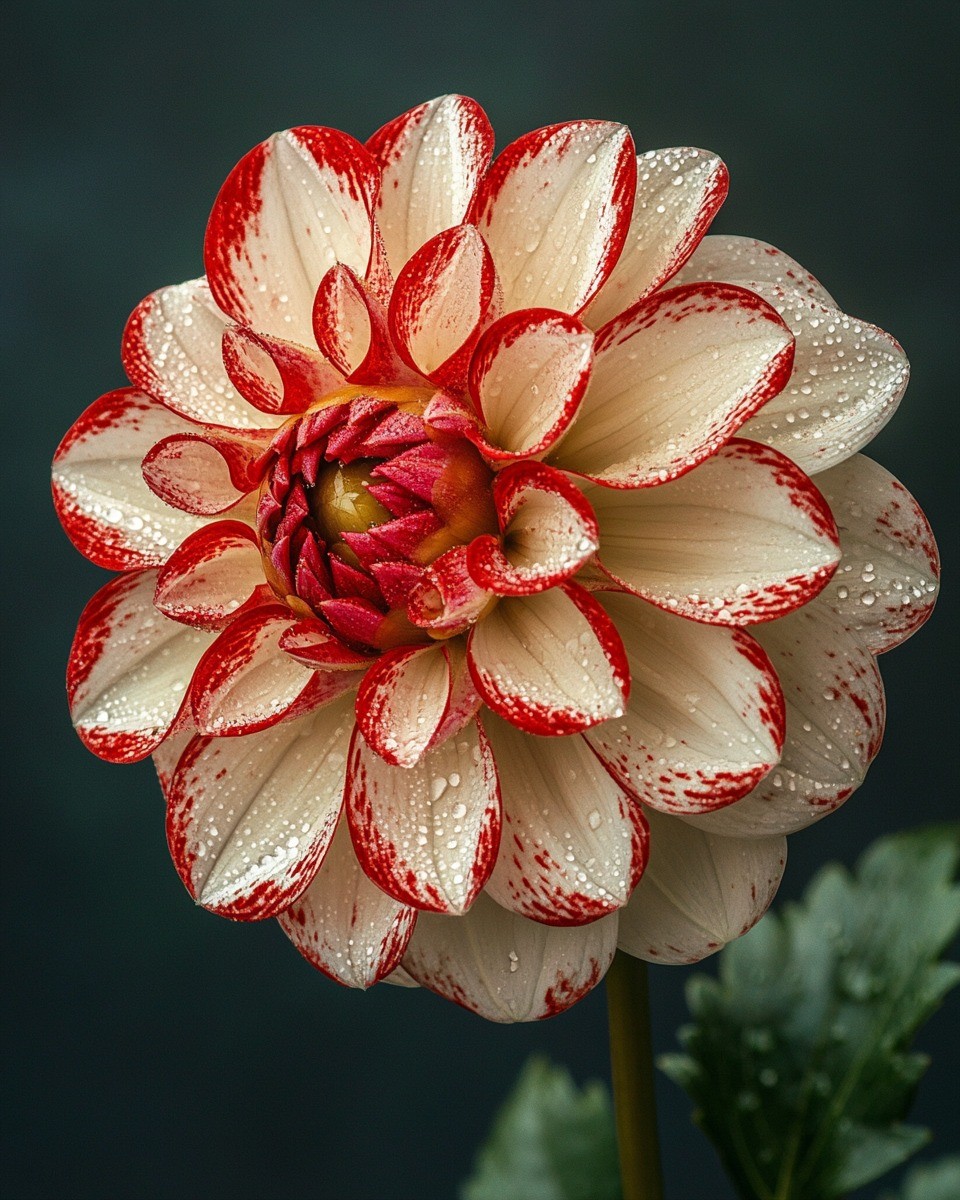Flowers are steeped in rich symbolism and tradition.
Every flower – from the pink peony to the red rose and everything in between – has a meaningful story to tell. And, in fact, flowers have been telling these stories for hundreds of years. Poets and playwrights have known for centuries that flowers have a language of their own. If you study mythology and the famous plays of the ancient Romans and Greeks, for example, you will find flower colour meanings and symbolism in abundance. And with good reason.
Flowers Say Things We Can’t Always Put Into Words
So whether you’re picking out a basket of flowers for your mom or a bouquet of roses for your partner, you can harness the incredible power of this language to communicate what might be harder to put into words. But first, you have to know what flower colours mean and what they symbolize.
This is your handy flower guide, packed with helpful information from an expert who has years of experience with colour interpretations.
9 of the Most Popular Flower Colours and Their Meanings
Ready to get started? Let’s take a look at some very popular flower colours and analyze what they mean.
1. Blue
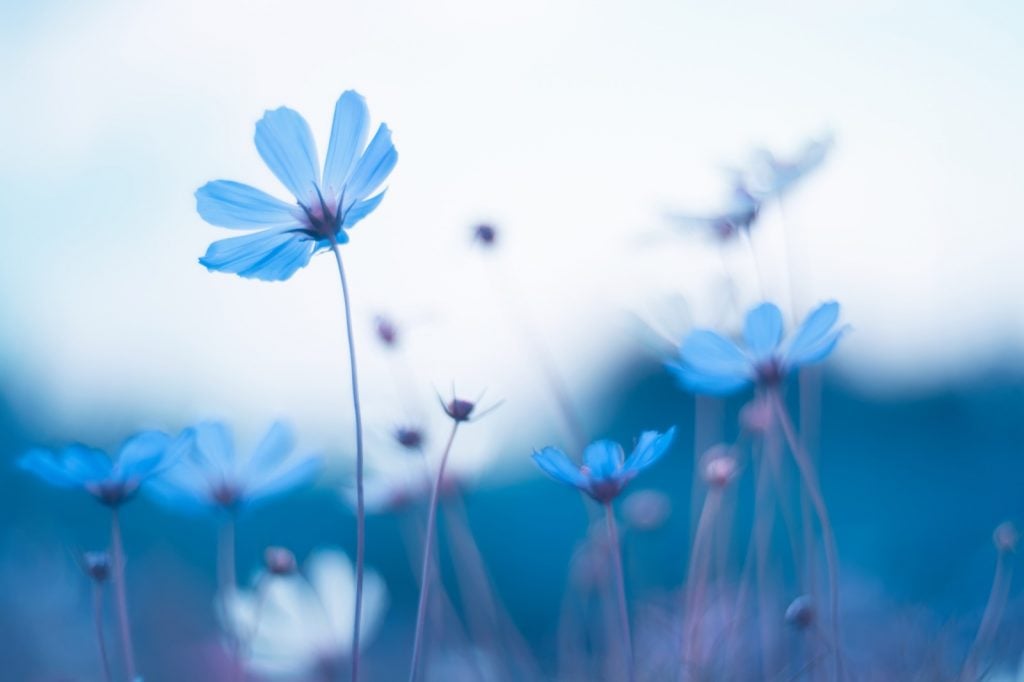
Blue flowers are generally associated with relaxation. Like bright blue oceans and clear blue skies, blue flowers do a wonderful job helping their recipient release tension and experience peace. If you want to give a bouquet of flowers to someone who experiences stressful times, include blue flowers in your presentation.
Rudyard Kipling, a poet born in the late 19th century, wrote the famous poem, “Blue Roses,” in which the opening lines read, “Roses red and roses white, Plucked I for my love’s delight. She would none of all my posies – Bade me gather her blue roses.”
And for two centuries, blue roses – though they do not exist naturally in nature due to genetic limitations – have represented immortality and the quest for the unattainable. To receive a blue rose, which is most often a white rose that has been dyed, is to receive one of the rarest flowers in the world. Today’s movies and novels love to include blue roses to represent mystery.
Because blue flowers are rare, they are often given to someone who is considered special or unique. Blue flowers represent ultimate trust and commitment.
Three of the best-loved blue flowers to give or receive are asters, hydrangeas, and morning glories.
| Asters | faith, love, wisdom |
| Hydrangeas | beauty, grace, gratitude |
| Morning Glories | strength |
2. Green
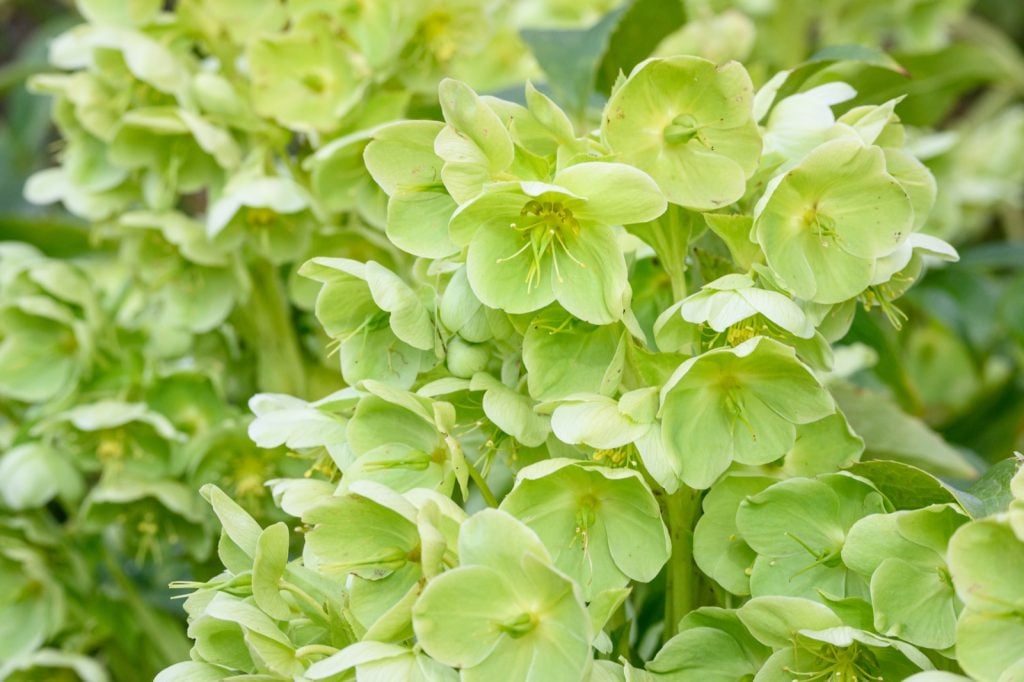
Green flowers are generally associated with health, growth, and good fortune. Green is often the colour associated with growth and health – such as the colour we think about for spring – and since green is associated with money, it also represents fortune.
According to wildflower experts, “Green may actually be the most common flower colour. There are many plants, including most trees, that bear flowers mostly green in colour.”
You may never have considered green flowers to be the most common because they aren’t typically the center of attention in a bouquet or a garden, but notice how often green flowers fill out a basket, pot, or bouquet. Green flowers are truly all around us, providing life, growth, and health.
Green flowers send a distinct message of hope. So if you are in a situation where you want to communicate to someone that things will be okay, send green flowers.
Three of the best-loved green flowers to give or receive are anthurium, button flowers, and green orchids.
| Anthurium | hospitality |
| Button Flowers | protection and healing |
| Green Orchids | health, life, longevity, strength |
3. Lavender
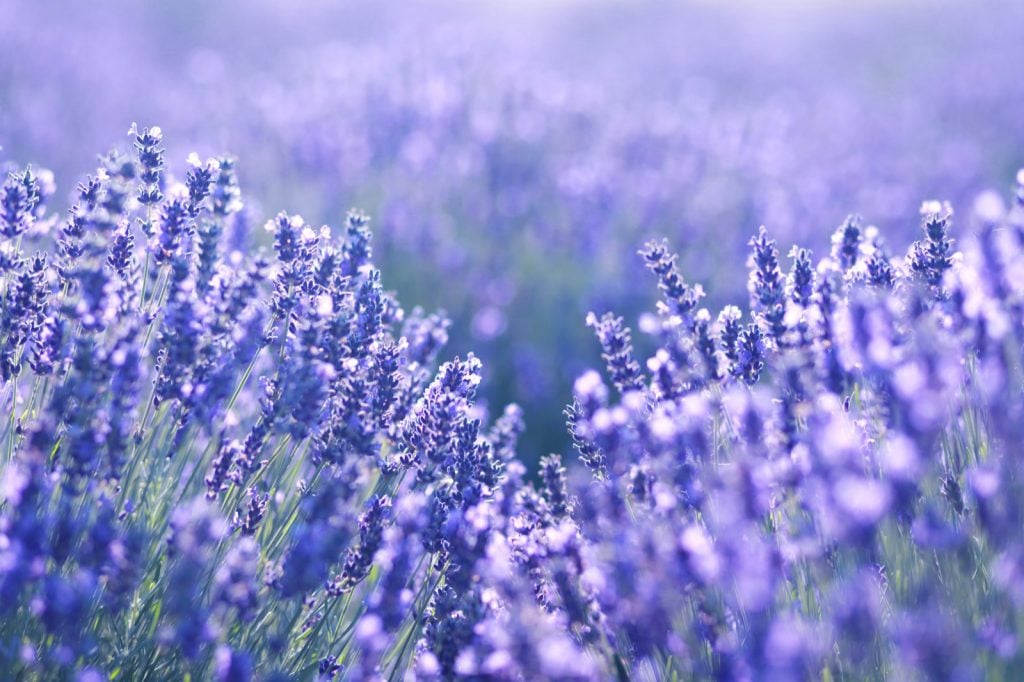
Lavender flowers are generally associated with delicacy and elegance. They have long represented purity and have been used in ceremonies celebrating innocence. They are also linked to health because of how often they are used in essential oils and other natural remedies. Lavender flowers are associated with cosmetic, sleep, and spa products as they are closely associated with beauty.
In addition to being beautiful flowers, lavender flowers are very practical and appealing. They are commonly dried and hung in rooms and closets in order to emit a lovely scent that also happens to repel moths. Ancient Romans were known for adding lavender flowers to their baths.
Fun Fact: While the petunia symbolizes some very good virtues (see below), it is also commonly used to represent anger and resentment, especially when illustrated as a tattoo. So, if you’ve recently had a falling out with someone, and you want to make yourself clear, send petunias. But make sure your enemy understands what the flower really means.
Three of the best-loved lavender flowers to give or receive are orchids, daisies, and petunias.
| Daisies | innocence, purity |
| Orchids | beauty, luxury, strength |
| Petunias | dignity, trust, truth |
4. Orange
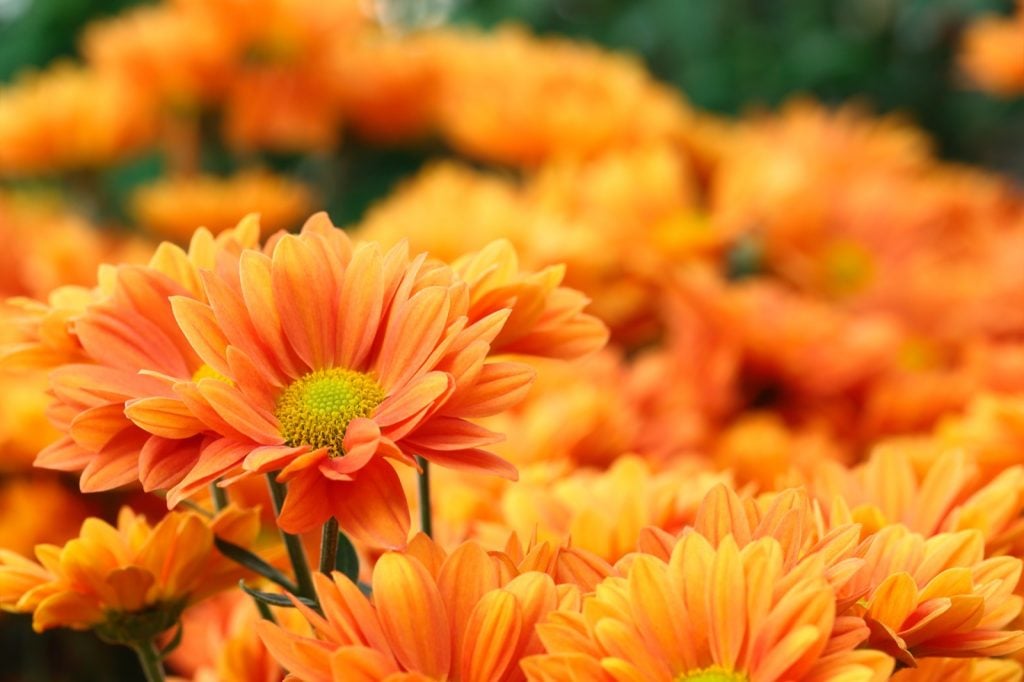
Orange flowers are generally associated with joy and enthusiasm. And it makes sense, doesn’t it? Very few colours are as naturally happy as orange.
They also symbolize warmth, which is why they are popular flowers in the fall when the outdoors starts to cool.
Sometime around the 20th century, florists started to experiment with cross-breeding roses. Eventually, they tried red and yellow and created the beautiful, fresh orange rose that we still love and share today. This specific discovery led to a total transformation of the flower industry, and florists and botanists realized what they could do with flowers to create vibrant and delightful creations.
Because orange roses are a hybrid of yellow roses (meaning friendship) and red roses (meaning love), they are often given by someone who has mixed feelings about a former-friend-turned-romantic-interest. If you want to communicate to an old friend that you might be falling in love, send orange roses.
Three of the best-loved orange flowers to give or receive are marigolds, tulips, and zinnias.
| Marigolds | light, power, strength |
| Tulips | perfect love |
| Zinnias | affection, friendship, remembrance |
5. Pink
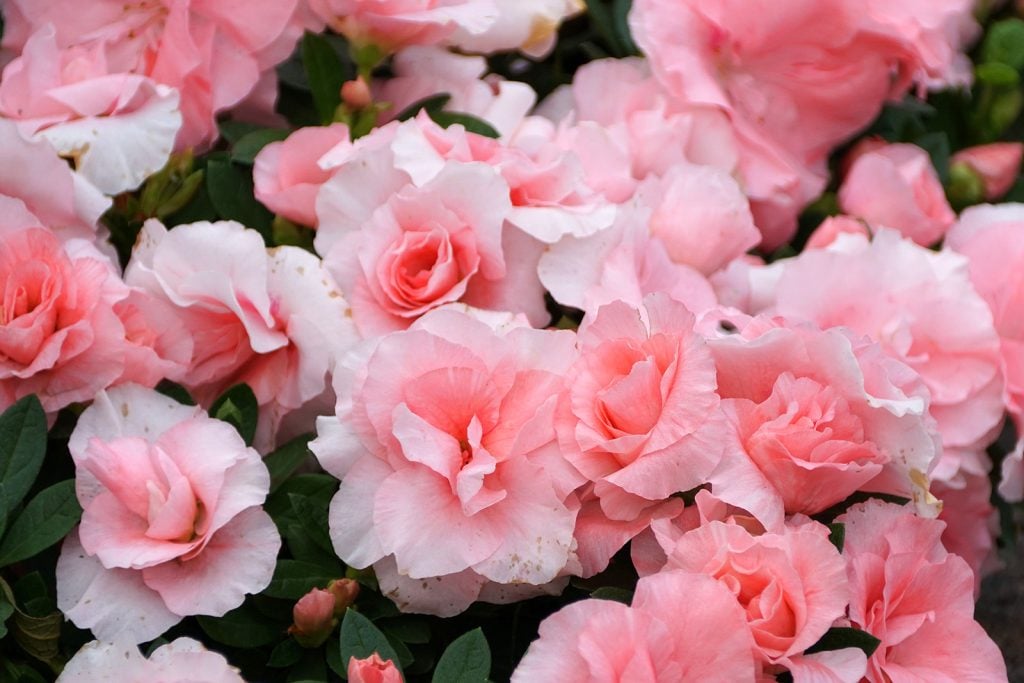
Pink flowers are generally associated with happiness and gentleness. One of the most common colours of flowers, pink is considered highly feminine. They are often the colour of choice for Mother’s Day.
When it comes to pink flowers, carnations are typically the most popular flower as they work well for somebody who is both love-struck and on a budget. For decades high school students have received pink carnations from secret admirers. But if you love the language and symbolism of flowers, you’ll want to avoid carnations that are neither white nor pink. Yellow carnations communicate disdain, and two-toned mean, “I can’t be with you.” Not exactly a great strategy for someone in love.
Three of the best-loved pink flowers to give or receive are carnations, lilies, and peonies.
| Carnations | gratitude |
| Lilies | innocence, purity, fertility |
| Peonies | honor, luck, prosperity |
6. Purple
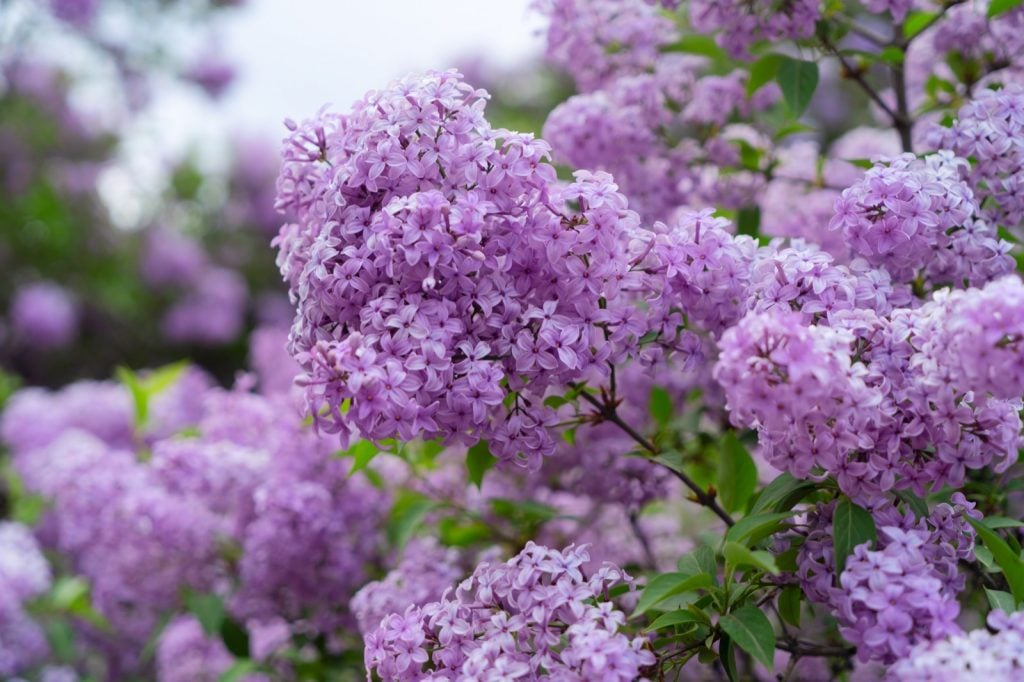
Purple flowers are generally associated with charm and elegance. Like the red flower, they can symbolize romance. Because of ancient connections between the colour purple and royalty, they are often used in ceremonies where pomp and circumstance are present.
Interesting to note, the purple hyacinth actually means, “Please forgive me.” It originates from a myth surrounding Apollo and Hyacinthus. As the story goes, Apollo killed Hyacinthus. So today, the purple hyacinth represents apology.
Three of the best-loved purple flowers to give or receive are bellflowers, clematises, and irises.
| Bellflowers | affection, constancy, gratitude |
| Clematises | ingenuity |
| Irises | courage, faith, hope, wisdom |
7. Red
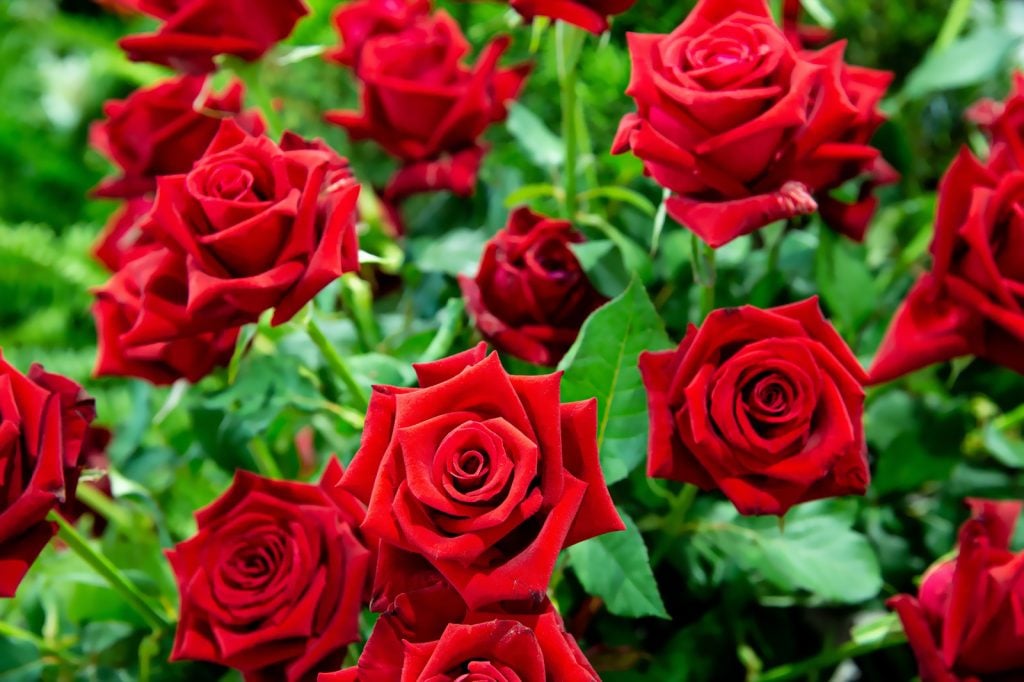
Red flowers are generally associated with passion. No surprise, right? This is why red roses are in such high demand on Valentine’s Day. Red flowers are fairly well-known for symbolizing love, but they also represent courage and respect.
Red flowers have more types and meanings than just about any colour of flower. Consider these popular blooms and their symbolism:
Aster: means undying devotion; is popular in Greek mythology.
Chrysanthemum: symbol of beauty and joy; is the official flower of November.
Anemone: is popularly used in paintings; one of the most popular flowers in wedding arrangements.
Yarrow: one of the world’s oldest medicinal plants; represents spiritual and physical protection.
If you love someone and want to express your love, you typically can’t go wrong giving them a bouquet of beautiful, red flowers.
Three of the best-loved red flowers to give or receive are poppies, roses, and tulips.
| Poppies | remembrance |
| Roses | love, romance |
| Tulips | deep, perfect love |
8. White
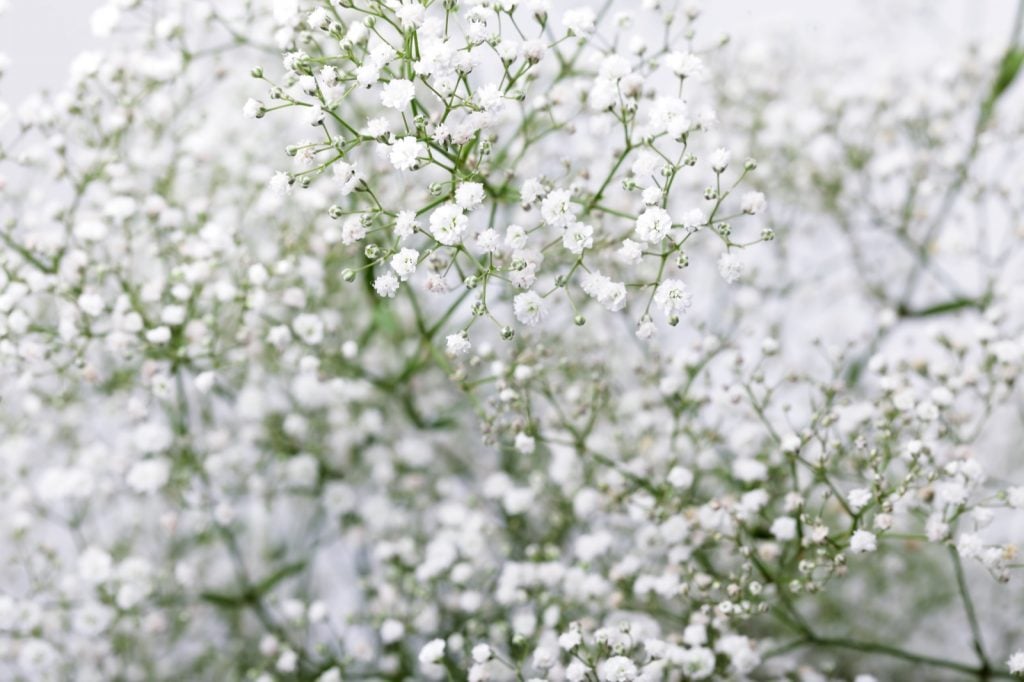
White flowers are generally associated with innocence and peace. They represent purity and virtue and are often used in bridal bouquets. They are also used when paying tribute or offering sympathy.
When the weather starts to chill and you need flowers to brighten up the gloomy space, nothing works better than a bouquet of white flowers. Not only do white flowers lighten the space, but they are a neutral palette that will reflect the other colours in the room. Consider adding other fall or winter colours to the mix like red, orange, or green. It will brighten the space almost as powerfully as adding another lamp or light fixture.
Three of the best-loved white flowers to give or receive are daisies, orchids, and roses.
| Daisies | innocence |
| Orchids | elegance, innocence, reverence |
| Roses | innocence, purity, youthfulness |
9. Yellow
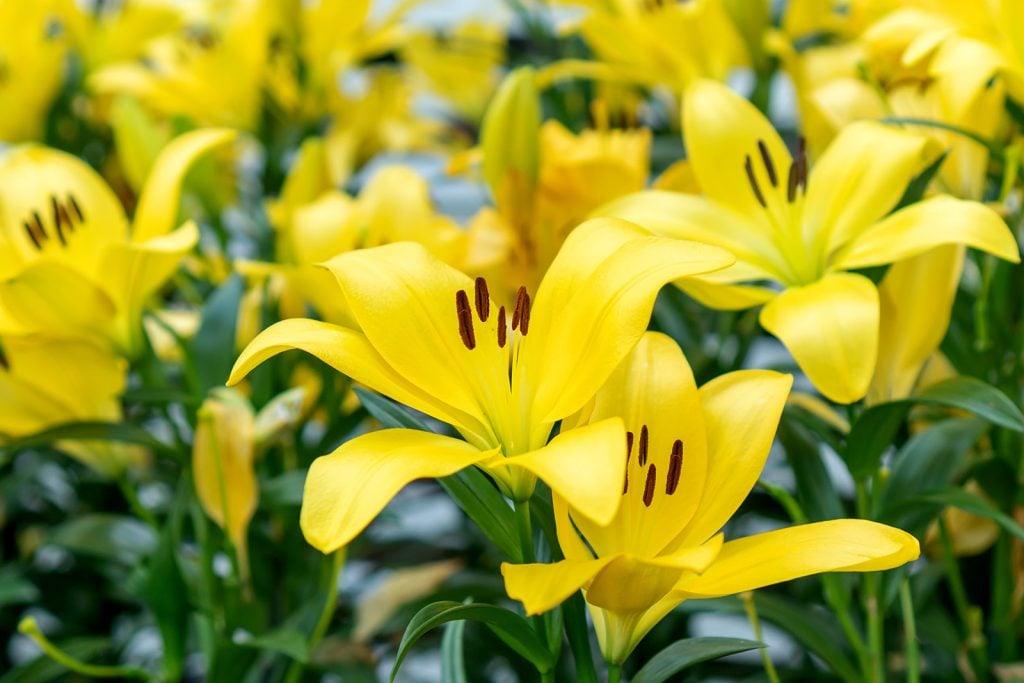
Yellow flowers are generally associated with joy and happiness. They symbolize friendship and energy. They are often shared between friends and are typically given in order to brighten someone’s day. Is there anything happier than a field of sunflowers?
Very little puts a smile on someone’s face as quickly as a bouquet of yellow flowers. Need a suggestion? Look for the Carolina jessamine. It’s the state flower of South Carolina and is known for its bright, fragrant blossoms, which give off a sweet and somewhat spicy scent. These flowers make beautiful gifts or lovely centerpieces, especially on a drab day.
Three of the best-loved yellow flowers to give or receive are daisies, lilies, and sunflowers.
| Daisies | happiness, friendship |
| Lilies | happiness, remembrance |
| Sunflowers | happiness, intelligence, vitality |
12 Amazing Facts About the Language of Flowers and Their Symbolism
Flowers truly are a wonderful gift with a language all of their own. Before we go, we want to share some interesting symbolism from the language of flowers:
1. Lotus Flowers
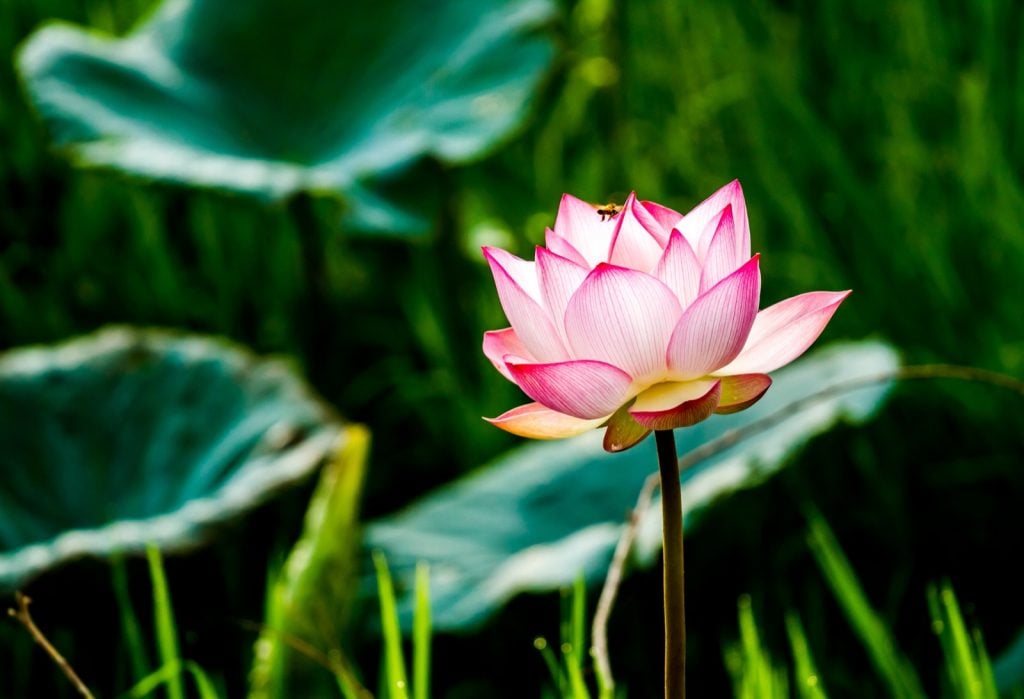
Did you know the lotus flower grows in mud? Every night while the world sleeps, lotus flowers return into the mud and then re-blooms every morning. Because of this amazing fact, many cultures view the lotus flower as representing rebirth and enlightenment.
2. Daisies
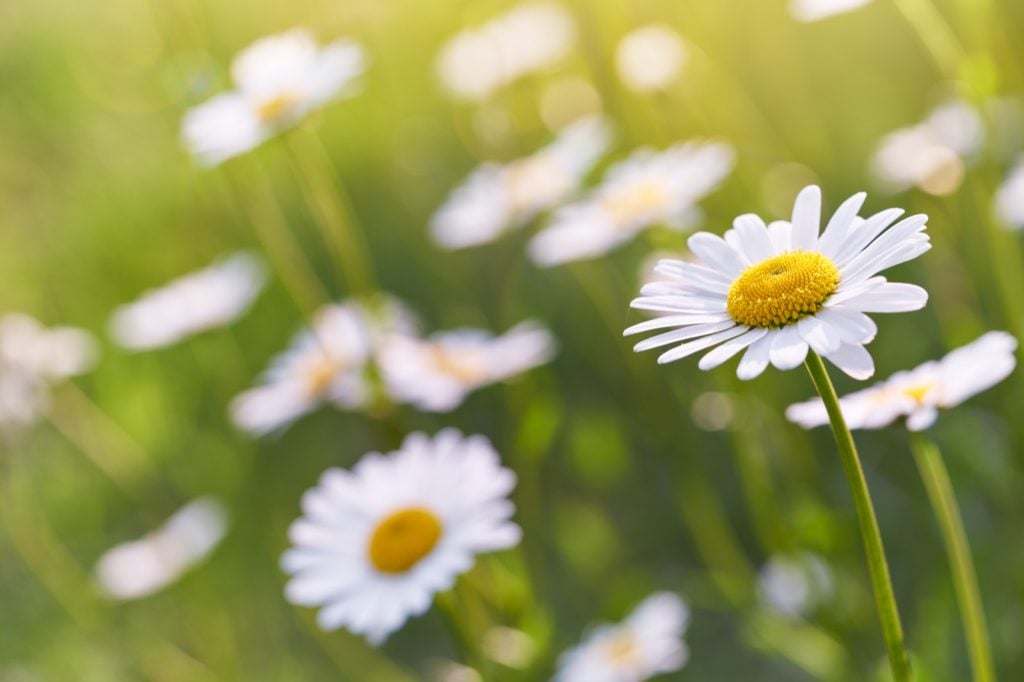
“Daisy” is the first level of Girl Scouts, named for Juliette Daisy Gordon Low. But it’s also appropriate that the “daisy” represents the first level of Girl Scouts because daisies represent innocence. Little daisies with their sunny faces and bright dispositions work for the flower and most 5–7 year-old girls.
3. Sunflowers
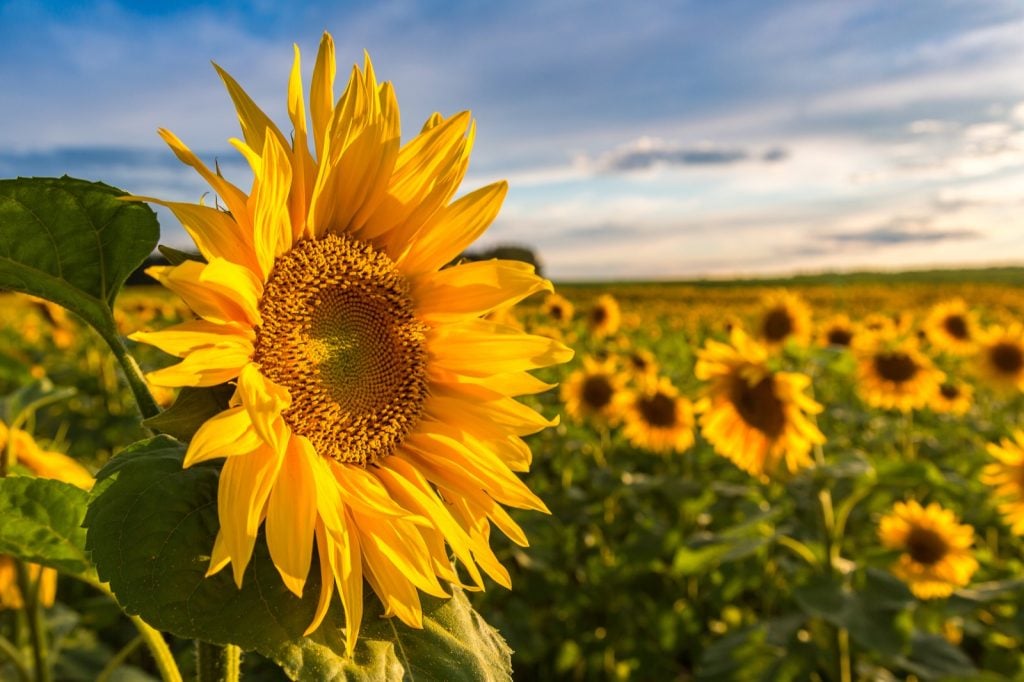
While many people believe sunflowers represent happiness, intelligence, and vitality, others believe they symbolize false riches. The story is told that when explorers reached the Americas, they saw the sunflowers and enthusiastically believed they were spun from real gold and would make them all wealthy beyond belief. So when they learned that sunflowers were not, in fact, made of gold, they associated them forever with false riches.
4. Edelweiss
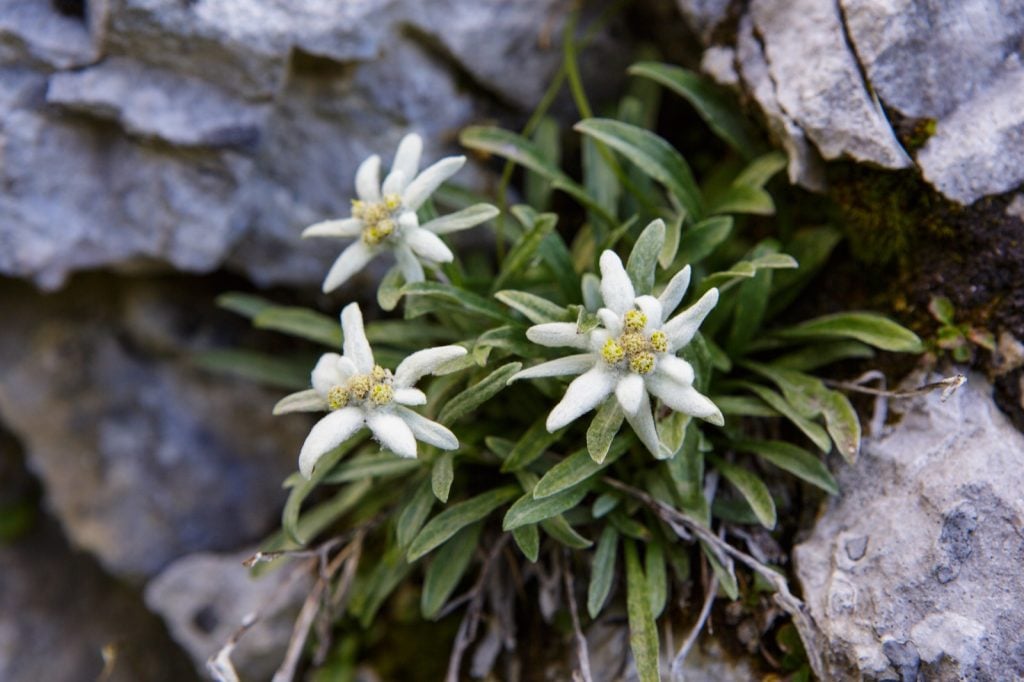
Edelweiss have long been associated with courage and devotion. This is primarily because of the flower’s impressive ability to thrive despite harsh Alpine conditions. So it would make sense that in The Sound of Music, the song Edelweiss is actually about a flower. But to someone who doesn’t understand the language of flowers, it might sound like it is being sung to a child:
Edelweiss, Edelweiss Every morning you greet me Small and white, clean and bright You look happy to meet me Blossom of snow may you bloom and grow Bloom and grow forever Edelweiss, Edelweiss Bless my homeland forever
5. Myrtles
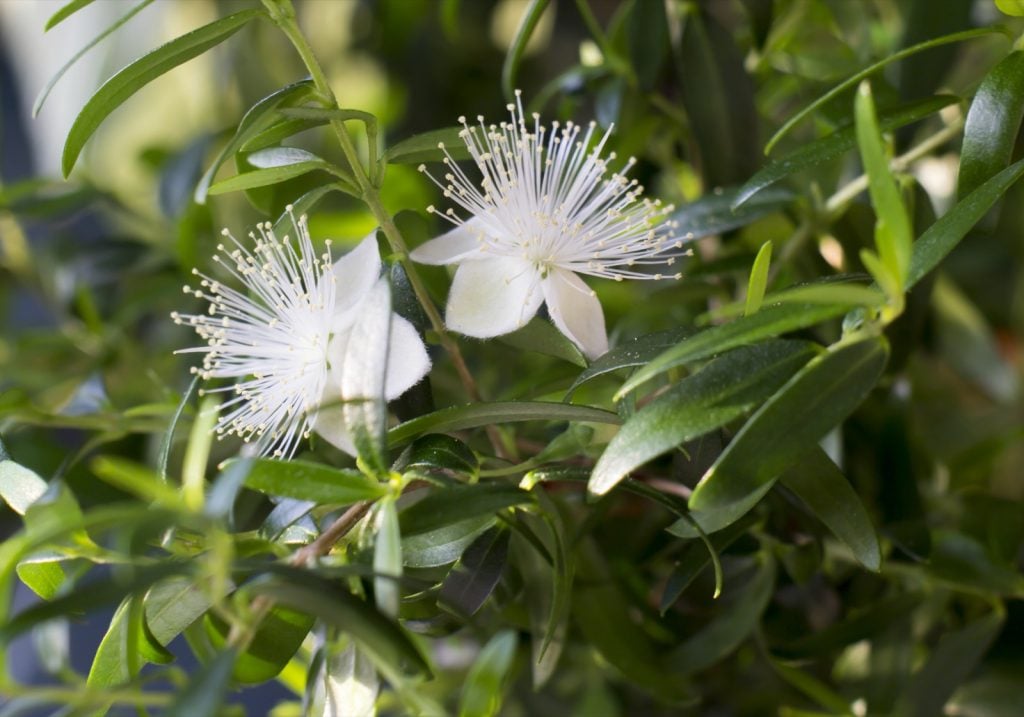
Dating back to the 1800s, royal brides have carried myrtle as part of their bridal bouquet. It would seem the tradition began with Queen Victoria in 1840 and continues to this day. And with good reason. Myrtle symbolizes good luck in a marriage.
6. Chrysanthemums
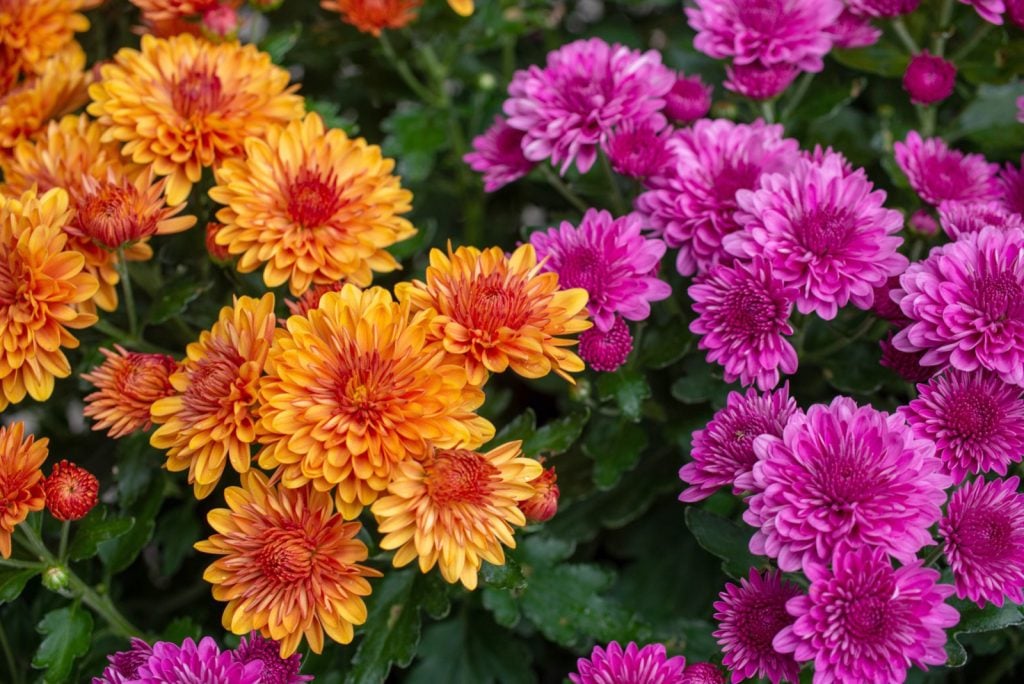
Chrysanthemums made their literary debut in Lucy Maud Montgomery’s much-loved classic, Anne of Green Gables. After spelling chrysanthemum correctly in a spelling bee, Anne said to her eventual love interest, “Thank you for your heartfelt congratulations, Mr. Blythe. But allow me to inform you that next time I shall be first in every subject.” Chrysanthemums are more than just a good word for a spelling bee. They symbolize honesty. They’re also a beautiful addition to fall bouquets and arrangements.
7. Daffodils
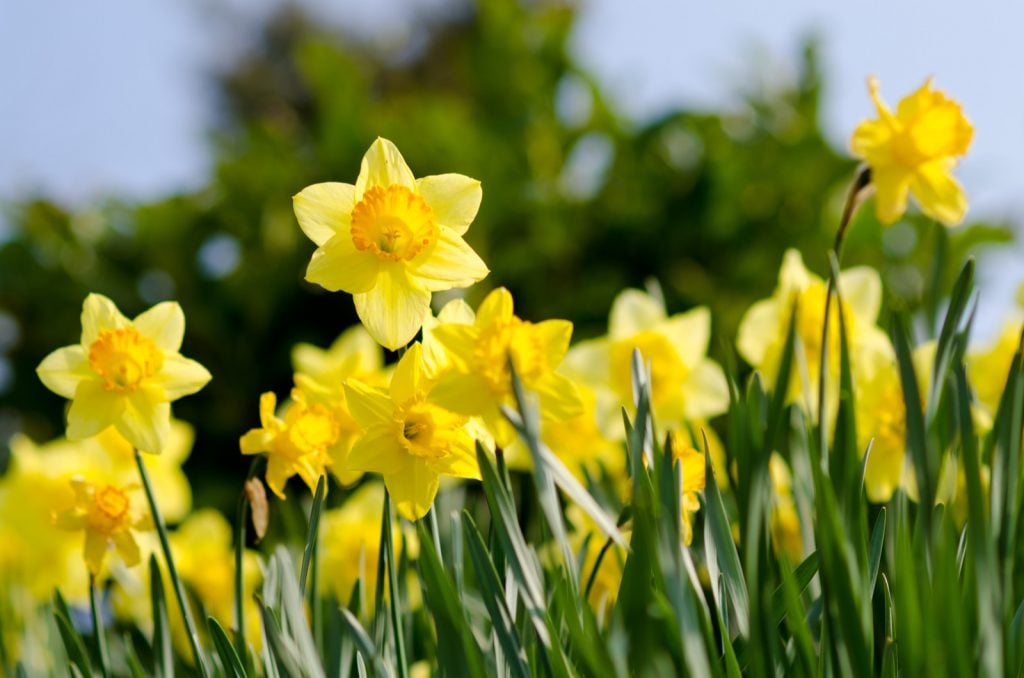
Daffodils are bright and sunny and represent new beginnings. So they make the perfect flower to give someone who is celebrating a new home, job, or addition to the family.
8. Peonies
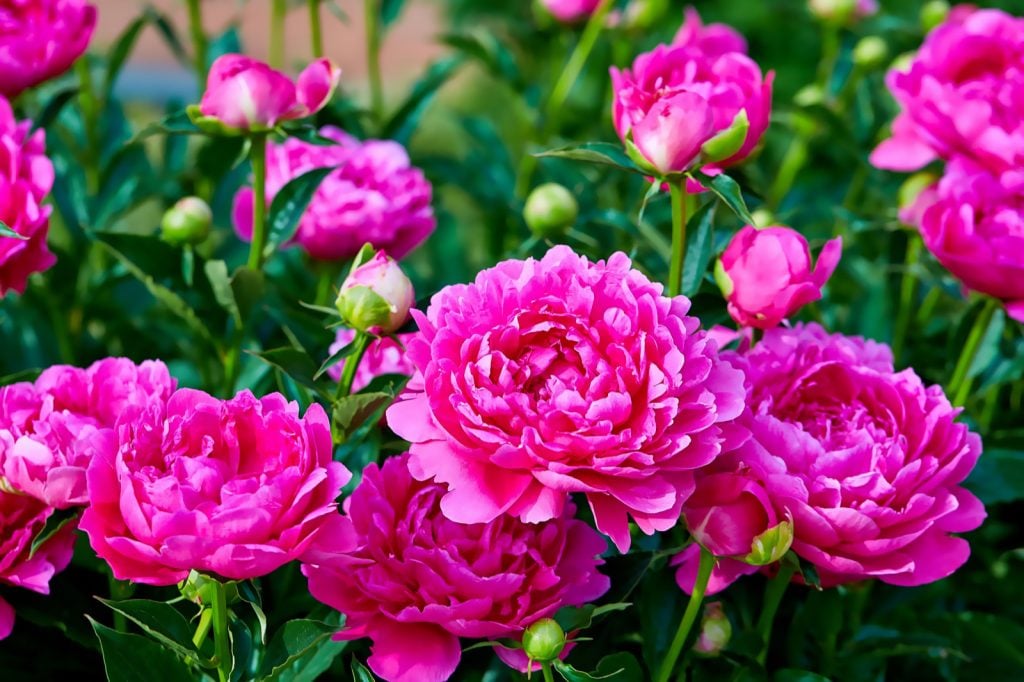
One of the most beautiful flowers available today is the multi-petaled peony, available in pink, red, rose, and white. This popular flower is linked to romance and marriage, but not so for our Victorian-era friends. To Victorians, the peony symbolized anger. Hard to believe, looking at it, that something so beautiful could mean something so harsh.
9. Snapdragons
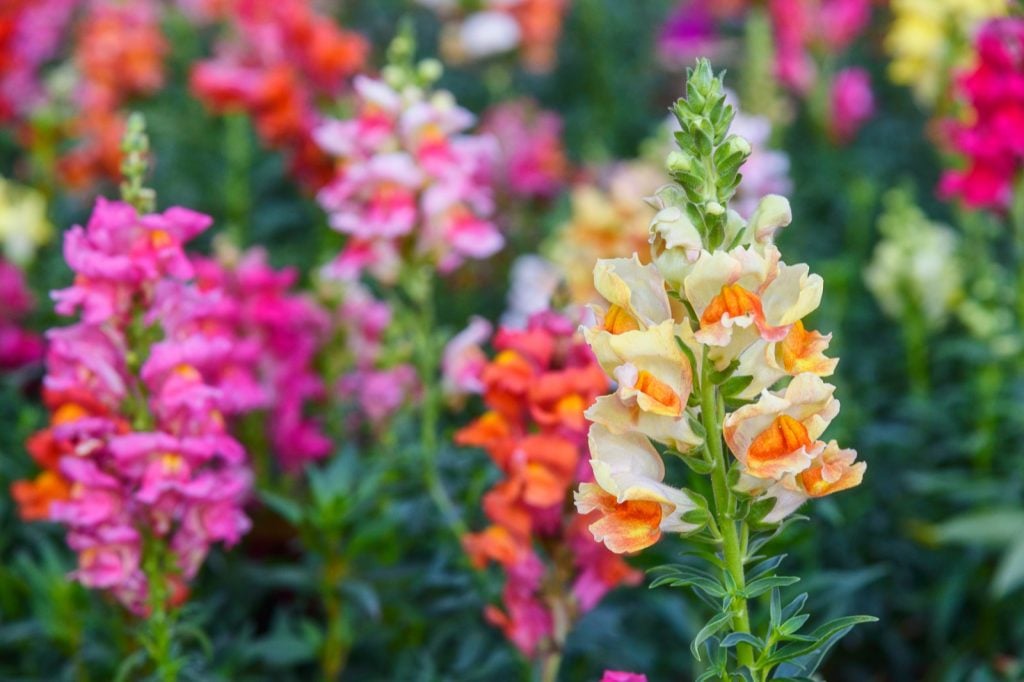
Snapdragons are incredibly creative and have the ability to make any bouquet look instantly more interesting, but keep in mind these flowers symbolize deception. So maybe don’t include these in a bouquet for someone with an eye on the language of flowers.
10. Poppies
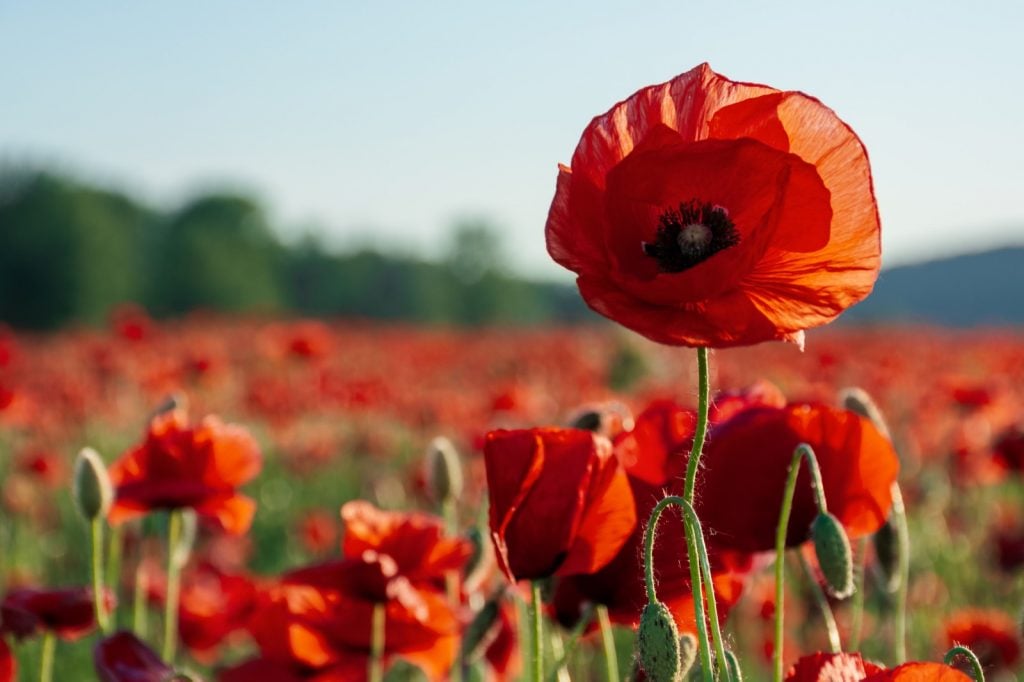
Red poppies represent remembrance, which is why it is common for people to wear red poppies on their lapels on Memorial Day or at other events where fallen soldiers are honored. In 1915, during World War I, Colonel John McCrae wrote a poem that has since become synonymous with the famous flower. It begins:
In Flanders Fields, the poppies blow Between the crosses, row on row, That mark our place; and in the sky The larks, still bravely singing, fly Scarce heard amid the guns below.
11. Rhododendrons
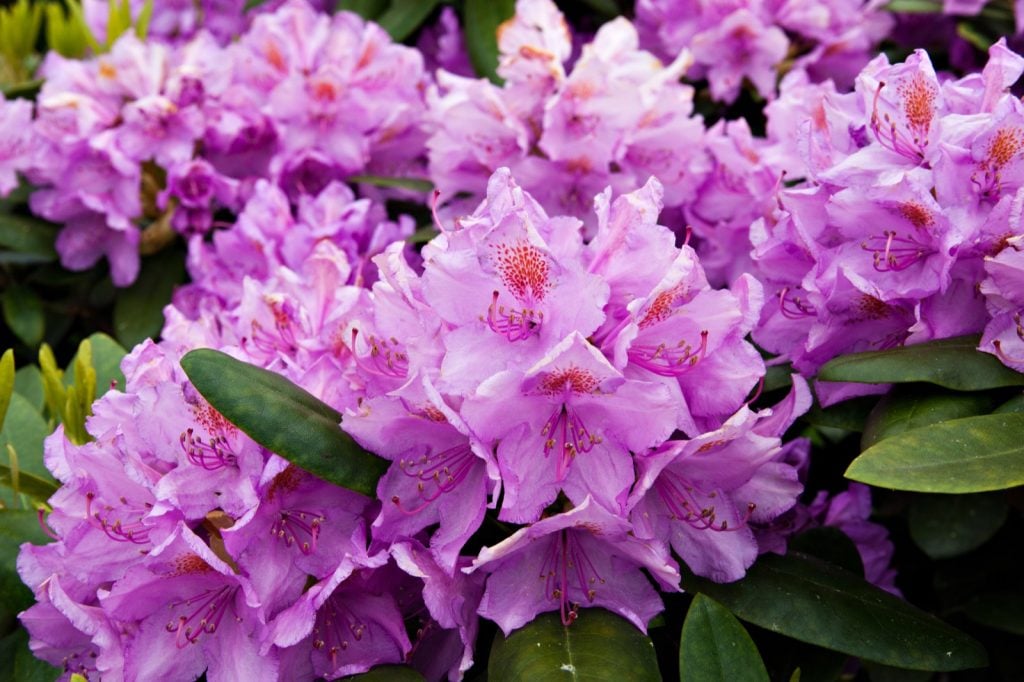
A little-known fact about Rhododendrons – they’re poisonous. Beautiful? Yes. Mildly dangerous if consumed? Also yes. This is why this flower means, “Beware.” If someone offers you a Rhododendron, maybe consider how close you really are and what the person has in mind?
12. Verbenas
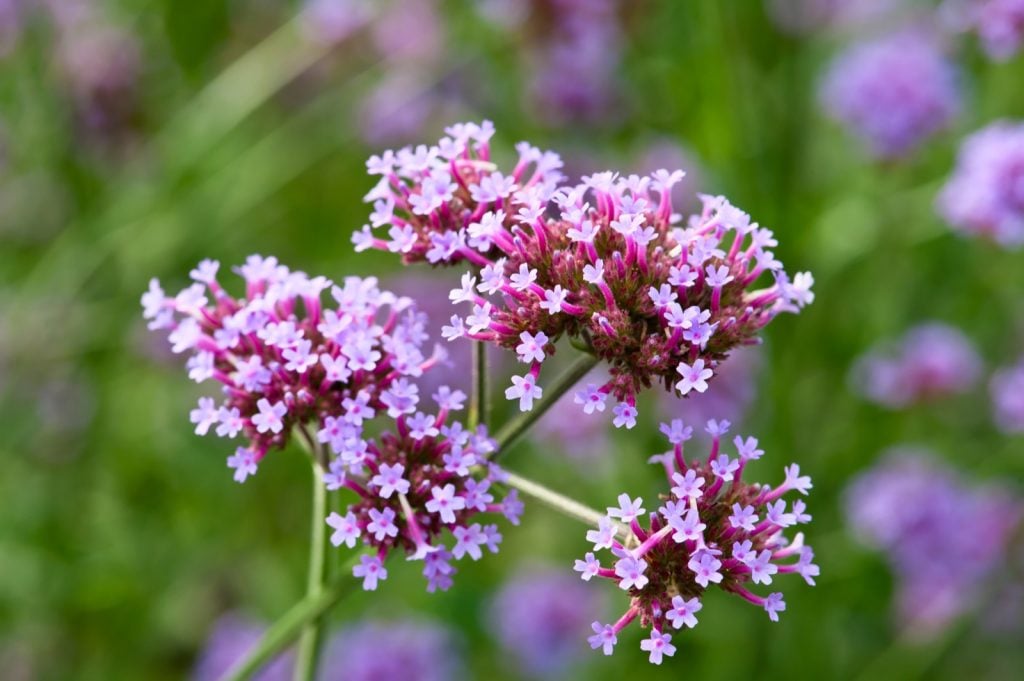
Verbenas have long been used in religious ceremonies. These pretty little purple flowers mean, “Pray for me,” and also represent the force of good to protect against evil.
